Jane Seymour

Jane Seymour has had an active role with The Chronicles Group since 2005 as the narrator for the feature length documentary Running Dry and its sequel, The American Southwest: Are We Running Dry?
A multiple Emmy and Golden Globe winner and recipient of the Officer of the British Empire (OBE) in the year 2000, Jane Seymour has proven her talents in virtually all media, the Broadway stage, motion pictures and television. Her love of art and color has led to her great success as a painter in watercolors and oils and as a designer. For almost 50 years, Jane has taken on many roles as an actress, including the James Bond film Live and Let Die (1973), Somewhere In Time (1980), East of Eden (1981), Onassis: The Richest Man in the World (1988), War and Remembrance (1988), Wedding Crashers (2005), the American television series Dr. Quinn, Medicine Woman (1993–1998), and Netflix’s Sandy Wexler (2017). However, the role that most defines Jane, is her life long work in philanthropy.
Actively involved in numerous charitable causes, Jane, along with filmmaker James Keach, founded the Open Hearts Foundation in 2010. This foundation has fulfilled her dream of building a legacy dedicated to serving others and empowering people to turn adversity into opportunity. This is based on the open-hearted philosophy of her mother, Mieke Frankenberg, a World War II internment camp survivor. As a tribute to her mother, Jane donates a portion of the proceeds of Open Hearts artwork to the Foundation. Seymour has also worked with Camp Soaring Eagle, Childhelp, and as a member of the American Red Cross National Celebrity Cabinet.
A multiple Emmy and Golden Globe winner and recipient of the Officer of the British Empire (OBE) in the year 2000, Jane Seymour has proven her talents in virtually all media, the Broadway stage, motion pictures and television. Her love of art and color has led to her great success as a painter in watercolors and oils and as a designer. For almost 50 years, Jane has taken on many roles as an actress, including the James Bond film Live and Let Die (1973), Somewhere In Time (1980), East of Eden (1981), Onassis: The Richest Man in the World (1988), War and Remembrance (1988), Wedding Crashers (2005), the American television series Dr. Quinn, Medicine Woman (1993–1998), and Netflix’s Sandy Wexler (2017). However, the role that most defines Jane, is her life long work in philanthropy.
Actively involved in numerous charitable causes, Jane, along with filmmaker James Keach, founded the Open Hearts Foundation in 2010. This foundation has fulfilled her dream of building a legacy dedicated to serving others and empowering people to turn adversity into opportunity. This is based on the open-hearted philosophy of her mother, Mieke Frankenberg, a World War II internment camp survivor. As a tribute to her mother, Jane donates a portion of the proceeds of Open Hearts artwork to the Foundation. Seymour has also worked with Camp Soaring Eagle, Childhelp, and as a member of the American Red Cross National Celebrity Cabinet.
Dr. Roger Bales
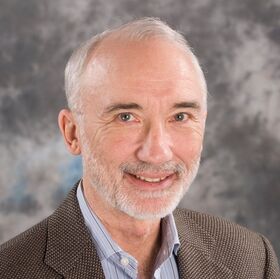
Dr. Roger Bales is a Distinguished Professor of Engineering at UC Merced. He has been active in water- and climate-related research for over 40 years. Dr. Bales’ scholarship includes over 160 papers in peer-reviewed journals, and many more presentations, reports, and book chapters. He works with leaders in state agencies, elected officials, federal land managers, water leaders, non-governmental organizations, and other decision makers to develop climate solutions for California. He has led several multi-investigator, multi-disciplinary research programs at UC Merced since 2003, and prior to that at the University of Arizona. Bales has been active in climate applications both regionally and nationally. He has led development of regional, national and international measurement programs that are critical for understanding climate change and contributing to climate solutions. He has also served on multiple advisory committees, is active in the region, and has a long record of service to the university. Dr. Bales is also a researcher in the Center for Information Technology Research in the Interest of Society (CITRIS).
Joanne Held Cummings
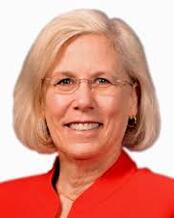
Joanne Held Cummings is an Adjunct Professor at Baylor University, educating upper-level undergraduates about Middle East political dynamics. She was was recently the Foreign Policy Advisor (POLAD) to CJTF-OIR, based in Baghdad. She has served extensively in the Middle East, North Africa, and East Africa.
As the daughter of a diplomat, she was raised in Lebanon, lived in Saudi Arabia’s Eastern Province, finished high school in Tehran, Iran, and graduated from university in Beirut, Lebanon before gaining an MA from the University of Texas at Austin. In the Department of State and in the private sector, she has worked in Syria, Yemen, Iraq, Afghanistan, Jerusalem, Egypt, Saudi Arabia, Cyprus, Ethiopia, and Micronesia as well as nine years working regionally from Morocco through Pakistan. Ms. Cummings was previously Deputy Chief of Mission in the Federated States of Micronesia. Among her earlier Foreign Service positions are Pol/Econ Section Chief, Refugee Coordinator, Economic Section Chief, POLAD (JSOC and MND-S), Political Officer, and Consular Officer. She speaks Arabic and French.
As the daughter of a diplomat, she was raised in Lebanon, lived in Saudi Arabia’s Eastern Province, finished high school in Tehran, Iran, and graduated from university in Beirut, Lebanon before gaining an MA from the University of Texas at Austin. In the Department of State and in the private sector, she has worked in Syria, Yemen, Iraq, Afghanistan, Jerusalem, Egypt, Saudi Arabia, Cyprus, Ethiopia, and Micronesia as well as nine years working regionally from Morocco through Pakistan. Ms. Cummings was previously Deputy Chief of Mission in the Federated States of Micronesia. Among her earlier Foreign Service positions are Pol/Econ Section Chief, Refugee Coordinator, Economic Section Chief, POLAD (JSOC and MND-S), Political Officer, and Consular Officer. She speaks Arabic and French.
Dr. Antoinette Hildering
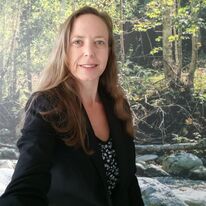
Dr. Antoinette Hildering combines a diversity of activities addressing social, economic and ecological aspects part and parcel of sustainable development. She is the founder of Hildering MC2 – Mediation Consultancy Coaching. She has taught public international law at various universities, including the University of Amsterdam and Utrecht University. Her research focuses on international water law and sustainable development. She is president of the foundation Jeugdwerk The Hague and the related foundations Talentenklup and Carriere Boost. Throughout her business, academic and social undertakings, Antoinette aims to identify sustainable alternatives and to encourage people in finding a balance of their own choice and making.
Karin Krchnak
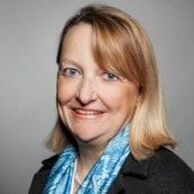
As an environmental lawyer, Karin Krchnak has worked to improve policies and procedures related to environmental management and resource conservation worldwide for over 25 years. She has spent the last 15 years in leadership positions around improving water resource management. This has included managing initiatives focused on advancing corporate water stewardship, water security, and building better governance through increased transparency, rule of law and institutional strengthening.
Ms. Krchnak received her B.A. in Political Science from Duke University and her J.D. from the University of Maryland School of Law. She has published extensively in international environmental policy and sustainable development, particularly on freshwater issues. She has served on numerous steering committees, including the Board of Governors of the World Water Council, its Executive Management Team and as Chair of the Governance Commission.
Ms. Krchnak received her B.A. in Political Science from Duke University and her J.D. from the University of Maryland School of Law. She has published extensively in international environmental policy and sustainable development, particularly on freshwater issues. She has served on numerous steering committees, including the Board of Governors of the World Water Council, its Executive Management Team and as Chair of the Governance Commission.
Asanda Magaqa

Currently completing her Master of Business Administration from the University of Cumbria, Asanda Magaqa, is a journalist and communications professional with 16 years of experience and a passion to tell the stories of the poor, marginalized and easily forgotten South Africans.
Magaqa was the youngest anchor (at the age of 21) of an SABC flagship Radio Current Affairs show in 2004 – Laphum’ikhwezi on Umhlobo Wenene FM, and then the anchor of Asikhulume/Let’s Talk’ in 2007. In 2006 she traveled to the Middle East to cover the war in Lebanon between Hezbollah and Israel for South African Broadcasting Corporation (SABC) where she produced an award-winning Radio Current Affairs piece entitled The Children of War." After leaving the SABC in 2014, she worked at PRIMEDIA hosting her own radio show on Power FM and a current-affairs show on the Africa News Network and later ENCA until February 2018.
Magaqa ventured into Government Communications as the spokesperson for the Minister of Arts and Culture, Hon. Nathi Mthethwa. She also founded her own boutique media and communications firm in 2014 where she offered consultation as a political and digital media strategist and trainer and reputation and crisis management practitioner.
She is most currently the Founder and CEO of the unprecedented and soon to be launched CITIZEN TV AFRICA.
Magaqa's passion has led to a multitude of industry adulation. She was awarded the 2010 BBC Africa Radio Award for Best Journalist in Southern Africa. In 2011, a two-part series on abducted child brides entitled Ukuthwala: Unveiled was Shortlisted for a Commonwealth Broadcasting Association Award. In 2012, she awarded the Vodacom Journalist of the Year Award in the Television Feature category, for No Woman's Land - the story of Zimbabwean women illegal immigrants whose first experience of South Africa was being raped after crossing the Limpopo River- the natural boundary between the two countries. That same year she was honored as one of Mail and Guardian Newspaper's 200 Young South Africans.
Originally from Ngqamakhwe in the Transkei region of the Eastern Cape, Magaqa holds a Diploma in Dramatic Arts Studies, a Diploma in Broadcasting, a Post-Graduate Certificate in Journalism Practice and a Post-Graduate Certificate in Media Law.
Magaqa was the youngest anchor (at the age of 21) of an SABC flagship Radio Current Affairs show in 2004 – Laphum’ikhwezi on Umhlobo Wenene FM, and then the anchor of Asikhulume/Let’s Talk’ in 2007. In 2006 she traveled to the Middle East to cover the war in Lebanon between Hezbollah and Israel for South African Broadcasting Corporation (SABC) where she produced an award-winning Radio Current Affairs piece entitled The Children of War." After leaving the SABC in 2014, she worked at PRIMEDIA hosting her own radio show on Power FM and a current-affairs show on the Africa News Network and later ENCA until February 2018.
Magaqa ventured into Government Communications as the spokesperson for the Minister of Arts and Culture, Hon. Nathi Mthethwa. She also founded her own boutique media and communications firm in 2014 where she offered consultation as a political and digital media strategist and trainer and reputation and crisis management practitioner.
She is most currently the Founder and CEO of the unprecedented and soon to be launched CITIZEN TV AFRICA.
Magaqa's passion has led to a multitude of industry adulation. She was awarded the 2010 BBC Africa Radio Award for Best Journalist in Southern Africa. In 2011, a two-part series on abducted child brides entitled Ukuthwala: Unveiled was Shortlisted for a Commonwealth Broadcasting Association Award. In 2012, she awarded the Vodacom Journalist of the Year Award in the Television Feature category, for No Woman's Land - the story of Zimbabwean women illegal immigrants whose first experience of South Africa was being raped after crossing the Limpopo River- the natural boundary between the two countries. That same year she was honored as one of Mail and Guardian Newspaper's 200 Young South Africans.
Originally from Ngqamakhwe in the Transkei region of the Eastern Cape, Magaqa holds a Diploma in Dramatic Arts Studies, a Diploma in Broadcasting, a Post-Graduate Certificate in Journalism Practice and a Post-Graduate Certificate in Media Law.
Siyanda Ruth Ngebulana
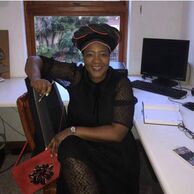
Siyanda Ruth Ngebulana is a highly accomplished senior executive the fields of international trade, promotion, and business development. She currently serves as Business Support & Development Manager at the Impuma Group in Gauteng, South Africa, where she is also responsible for the organization's Corporate Governance.
Prior to that, she spent six years as a Business Executive Coach for Hitachi, facilitating their trade mission to South Africa to showcase the company’s water treatment technology. Consequently, Hitachi's pilot project is up and running at Ethekwini Municipality (known as the City of Durban). Since February 2020 the pilot plant is being commissioned for the next six months & if successful a full Desalination plant will be constructed in 2021.
She also worked with AECOM Ltd. to rebranded their corporate identity, promote the company through industry conferences, exhibitions and awards, as well as hosted client visits. During the her seven years with the company, she served on three important committees: Business Development, Tender, and Top Management.
As the Business Development Manager at Biwater Pty Ltd, which later became Botjheng Water, she provided key market intelligence and focused on tracking municipal challenges, working closely with SALGA & Funders.
From 2002 - 2005, she worked as UK Trade & Investment's Senior Manager on Investment Promotion. Ngebulana facilitated & hosted numerous trade missions to the UK (outward missions) and in South Africa (inward missions). She facilitated successful scoping visits for the 2010 World Cup, Tourism missions, Healthcare missions, Market Research reports for UK companies, and facilitated BEE policy and round table discussions plus Graduate Mentorship programs.
Ngebulana has sat on several prestigious boards including the British Chamber of Commerce as Non-Executive Director where she was responsible for the Black Empowerment Policy & Membership portfolio.
Her extensive education includes a Post Graduate Diploma in Marketing from University of South Africa and a Bachelor of Commerce from University of Fort Hare, Eastern Cape, SA. Throughout her career, she has gained valuable expertise from a variety of development programs. Most recently, she completed an “Applied Directorship Programme” in Leadership Development at Sirdar Expedition Academy in 2019 and a six-month program on Business Executive Coaching on Leadership Development from the Gordon Institute of Business Science in 2016. She also completed the Institute of Directors of South Africa (IODSA) Director Development Programme in Corporate Governance and Risk & Strategy.
Prior to that, she spent six years as a Business Executive Coach for Hitachi, facilitating their trade mission to South Africa to showcase the company’s water treatment technology. Consequently, Hitachi's pilot project is up and running at Ethekwini Municipality (known as the City of Durban). Since February 2020 the pilot plant is being commissioned for the next six months & if successful a full Desalination plant will be constructed in 2021.
She also worked with AECOM Ltd. to rebranded their corporate identity, promote the company through industry conferences, exhibitions and awards, as well as hosted client visits. During the her seven years with the company, she served on three important committees: Business Development, Tender, and Top Management.
As the Business Development Manager at Biwater Pty Ltd, which later became Botjheng Water, she provided key market intelligence and focused on tracking municipal challenges, working closely with SALGA & Funders.
From 2002 - 2005, she worked as UK Trade & Investment's Senior Manager on Investment Promotion. Ngebulana facilitated & hosted numerous trade missions to the UK (outward missions) and in South Africa (inward missions). She facilitated successful scoping visits for the 2010 World Cup, Tourism missions, Healthcare missions, Market Research reports for UK companies, and facilitated BEE policy and round table discussions plus Graduate Mentorship programs.
Ngebulana has sat on several prestigious boards including the British Chamber of Commerce as Non-Executive Director where she was responsible for the Black Empowerment Policy & Membership portfolio.
Her extensive education includes a Post Graduate Diploma in Marketing from University of South Africa and a Bachelor of Commerce from University of Fort Hare, Eastern Cape, SA. Throughout her career, she has gained valuable expertise from a variety of development programs. Most recently, she completed an “Applied Directorship Programme” in Leadership Development at Sirdar Expedition Academy in 2019 and a six-month program on Business Executive Coaching on Leadership Development from the Gordon Institute of Business Science in 2016. She also completed the Institute of Directors of South Africa (IODSA) Director Development Programme in Corporate Governance and Risk & Strategy.
Natalia Uribe Pando
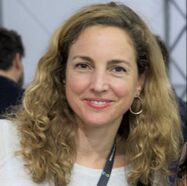
Psychologist and Social and Cultural Anthropologist, Natalia Uribe Pando is a dedicated human rights and sustainability advocate with over 16 years of experience in international cooperation at global and local levels. In her different positions of responsibility, she has worked to influence decision-makers, build the capacities of key stakeholders, and create strategic partnerships with intergovernmental organizations, governments, civil society, development cooperation agencies and academic institutions. These include Latin American countries like Brazil, El Salvador, Nicaragua, Honduras and Guatemala and African countries like Chad, Djibouti and Madagascar.
Natalia is currently Strategic Coordinator at Regions for Sustainable Development (Regions 4), the first global network of subnational governments working for biodiversity, climate change and localization of the Sustainable Development Goals. She previously worked as Policy and Advocacy Specialist with the UNESCO World Water Assessment Programme, focusing on increasing the uptake and impact of the UN flagship report on water. With Action Against Hunger, she developed the international advocacy strategy on water and worked with 46 country teams to include access to water, sanitation and hygiene in national strategies to combat undernutrition. Other experiences include supporting the elaboration of public policies for children’s rights with UNICEF El Salvador, creating the Human Right to Water Program at the UNESCO Centre of the Basque Country, facilitating cooperation on human rights between UNESCO and the Basque Government and facilitating the participation of women and youth in strategic international processes.
Natalia is currently Strategic Coordinator at Regions for Sustainable Development (Regions 4), the first global network of subnational governments working for biodiversity, climate change and localization of the Sustainable Development Goals. She previously worked as Policy and Advocacy Specialist with the UNESCO World Water Assessment Programme, focusing on increasing the uptake and impact of the UN flagship report on water. With Action Against Hunger, she developed the international advocacy strategy on water and worked with 46 country teams to include access to water, sanitation and hygiene in national strategies to combat undernutrition. Other experiences include supporting the elaboration of public policies for children’s rights with UNICEF El Salvador, creating the Human Right to Water Program at the UNESCO Centre of the Basque Country, facilitating cooperation on human rights between UNESCO and the Basque Government and facilitating the participation of women and youth in strategic international processes.
Dr. Anthony Turton
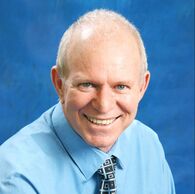
,Dr. Anthony Turton is a 12th generation African and direct descendent of a member of Jan van Riebeek’s original party. He has served in various capacities in the security forces of South Africa.
Initially deployed as a crew commander in an armored unit, he later became the unit specialist in mine warfare and IED’s (Improvised Explosive Devices). He was recruited into the National Intelligence Service (NIS), which gave him direct exposure to offensive Counter-Espionage operations run on foreign hostile soil. After the Pretoria car bomb detonated, a Special Operations (SO) unit was created within the Chief Directorate Covert Operations (CDCO) of the NIS designated K43. The mission given to K43 was the capture of the MK Chief of Staff, code named Billy, with the sole intention of bringing him home to stand trial for terrorism. This became the crucible from which a range of SO’s were launched. These included, but are not limited to: the intelligence support to the negotiations that allowed the SADF to withdraw from Angola; the implementation of UN Resolution 435, the establishment of the first covert contact with Nelson Mandela and the subsequent protection of the CODESA process, the monitoring of Russian willingness and capacity to intervene in South Africa as the USSR collapsed in 1989, and the deep penetration small team SO into Mozambique designed to stop the flow of weapons to the armed faction of the IFP that threatened to derail CODESA.
Anthony became a founding member of the South African Secret Service (SASS), where he served as Deputy Divisional Head C13 (Techno-Economic Intelligence) and as Divisional Head C11 (Covert Operational Support).
He obtained his Doctorate at the University of Pretoria and is recognized across a range of international security services for his insight into water as a national security risk. Today he specializes in strategic level risk mitigation for investors exposed to the financial insecurity of failing infrastructure, most notably water resources and water services. He is a professional speaker with a range of commercial interests in consulting and technology companies. He pioneered the concept of a virus risk forensic service as a response to Covid-19 and is working with various companies to implement this in different parts of the world.
Initially deployed as a crew commander in an armored unit, he later became the unit specialist in mine warfare and IED’s (Improvised Explosive Devices). He was recruited into the National Intelligence Service (NIS), which gave him direct exposure to offensive Counter-Espionage operations run on foreign hostile soil. After the Pretoria car bomb detonated, a Special Operations (SO) unit was created within the Chief Directorate Covert Operations (CDCO) of the NIS designated K43. The mission given to K43 was the capture of the MK Chief of Staff, code named Billy, with the sole intention of bringing him home to stand trial for terrorism. This became the crucible from which a range of SO’s were launched. These included, but are not limited to: the intelligence support to the negotiations that allowed the SADF to withdraw from Angola; the implementation of UN Resolution 435, the establishment of the first covert contact with Nelson Mandela and the subsequent protection of the CODESA process, the monitoring of Russian willingness and capacity to intervene in South Africa as the USSR collapsed in 1989, and the deep penetration small team SO into Mozambique designed to stop the flow of weapons to the armed faction of the IFP that threatened to derail CODESA.
Anthony became a founding member of the South African Secret Service (SASS), where he served as Deputy Divisional Head C13 (Techno-Economic Intelligence) and as Divisional Head C11 (Covert Operational Support).
He obtained his Doctorate at the University of Pretoria and is recognized across a range of international security services for his insight into water as a national security risk. Today he specializes in strategic level risk mitigation for investors exposed to the financial insecurity of failing infrastructure, most notably water resources and water services. He is a professional speaker with a range of commercial interests in consulting and technology companies. He pioneered the concept of a virus risk forensic service as a response to Covid-19 and is working with various companies to implement this in different parts of the world.
Prof. Stefan Uhlenbrook
International Water Management Institute, IWMI

Professor Stefan Uhlenbrook’ s main expertise includes water and sustainability assessments, hydrological process research and water resources management with focus on developing solutions for pressing water challenges. He is a renown academic and frequently invited speaker at high-level meetings worldwide. He has led many research and development projects that have demonstrated the impact of global changes on water cycle dynamics in different hydro-climatic regions worldwide, and they provided effective solutions to address these challenges. He is experienced on translating science-based knowledge to effective policies and strategies that contribute to environmental, economic and societal sustainability (i.e. Agenda 2030). Recently, he has enlarged his interest to food production system transformations to provide healthy and nutritious food for all and the central role of water and ecosystems.
Stefan Uhlenbrook is the Strategic Program Director Water, Food and Ecosystems at IWMI, Colombo, Sri Lanka. Before he was the Coordinator of the UNESCO World Water Assessment Programme (WWAP) and the Director of the UNESCO Programme Office on Global Water Assessment in Perugia, Italy (2015-2019). He previously worked at the UNESCO Institute for Water Education (now IHE Delft), as Professor of Hydrology (since 2005), Deputy Director (Vice-Rector) for Academic and Student Affairs (2000-2014) and Director a.i. (acting Rector; 2014-2015). Stefan obtained his PhD (1999) and habilitation (2003) in Hydrology at the University of Freiburg.
Stefan Uhlenbrook is the Strategic Program Director Water, Food and Ecosystems at IWMI, Colombo, Sri Lanka. Before he was the Coordinator of the UNESCO World Water Assessment Programme (WWAP) and the Director of the UNESCO Programme Office on Global Water Assessment in Perugia, Italy (2015-2019). He previously worked at the UNESCO Institute for Water Education (now IHE Delft), as Professor of Hydrology (since 2005), Deputy Director (Vice-Rector) for Academic and Student Affairs (2000-2014) and Director a.i. (acting Rector; 2014-2015). Stefan obtained his PhD (1999) and habilitation (2003) in Hydrology at the University of Freiburg.
Dr. Jie (Joe) Zhuang
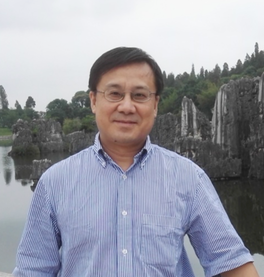
Dr. Jie (Joe) Zhuang is a professor in Department of Biosystems Engineering and Soil Science and Center for Environmental Biotechnology at the University of Tennessee, Knoxville, Tennessee, USA. He has served as the deputy director of the China-US Joint Research Center for Ecosystem and Environmental Change since 2007. He created a US-China 100-PhD Program in the areas of Environment, Energy and Food in 2014 and has recruited more than 40 students for PhD study in the United States.
Currently, with the financial support of National Science Foundation of the United States, Dr. Zhuang leads a project aiming to develop a global research network of the nexus of food, energy, and water systems for supporting urban sustainability. This transdisciplinary project involves researchers, students, stakeholders, and policy-makers of many countries of the world.
Over the past two decades, Dr. Zhuang has worked on many challenging research projects in the United States, Japan, and China. His research focuses on the fate and transport of contaminants (pathogens, radionuclides, colloids, organic chemicals, and munitions constituents), soil carbon management, soil hydrology, and plant-water relations. He has been editorial board member or guest editor for seven international journals and serves more than 60 international journals as ad hoc reviewer. Dr. Zhuang has published more than 120 referred papers and book chapters and given more than 40 invited talks worldwide.
Currently, with the financial support of National Science Foundation of the United States, Dr. Zhuang leads a project aiming to develop a global research network of the nexus of food, energy, and water systems for supporting urban sustainability. This transdisciplinary project involves researchers, students, stakeholders, and policy-makers of many countries of the world.
Over the past two decades, Dr. Zhuang has worked on many challenging research projects in the United States, Japan, and China. His research focuses on the fate and transport of contaminants (pathogens, radionuclides, colloids, organic chemicals, and munitions constituents), soil carbon management, soil hydrology, and plant-water relations. He has been editorial board member or guest editor for seven international journals and serves more than 60 international journals as ad hoc reviewer. Dr. Zhuang has published more than 120 referred papers and book chapters and given more than 40 invited talks worldwide.
